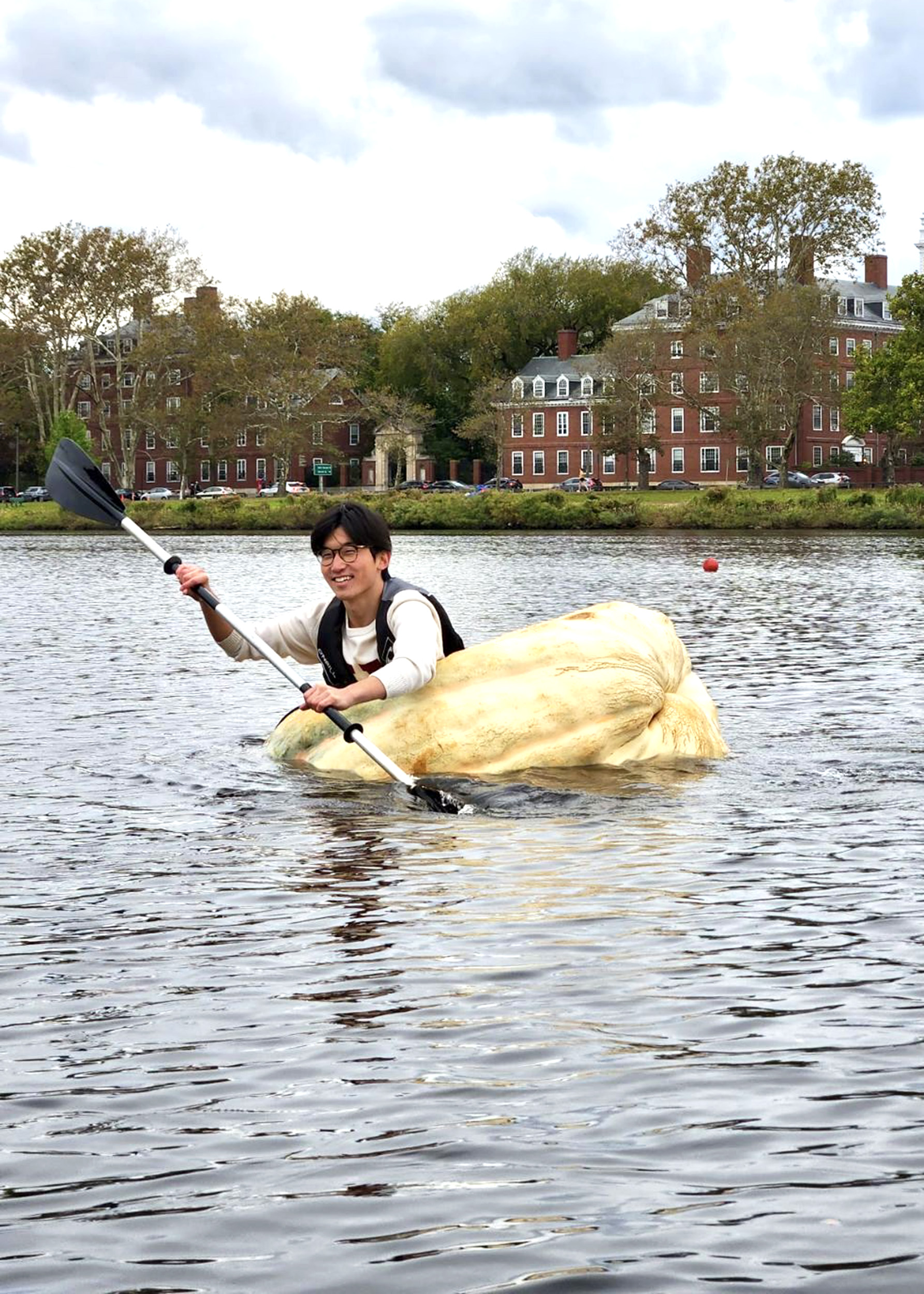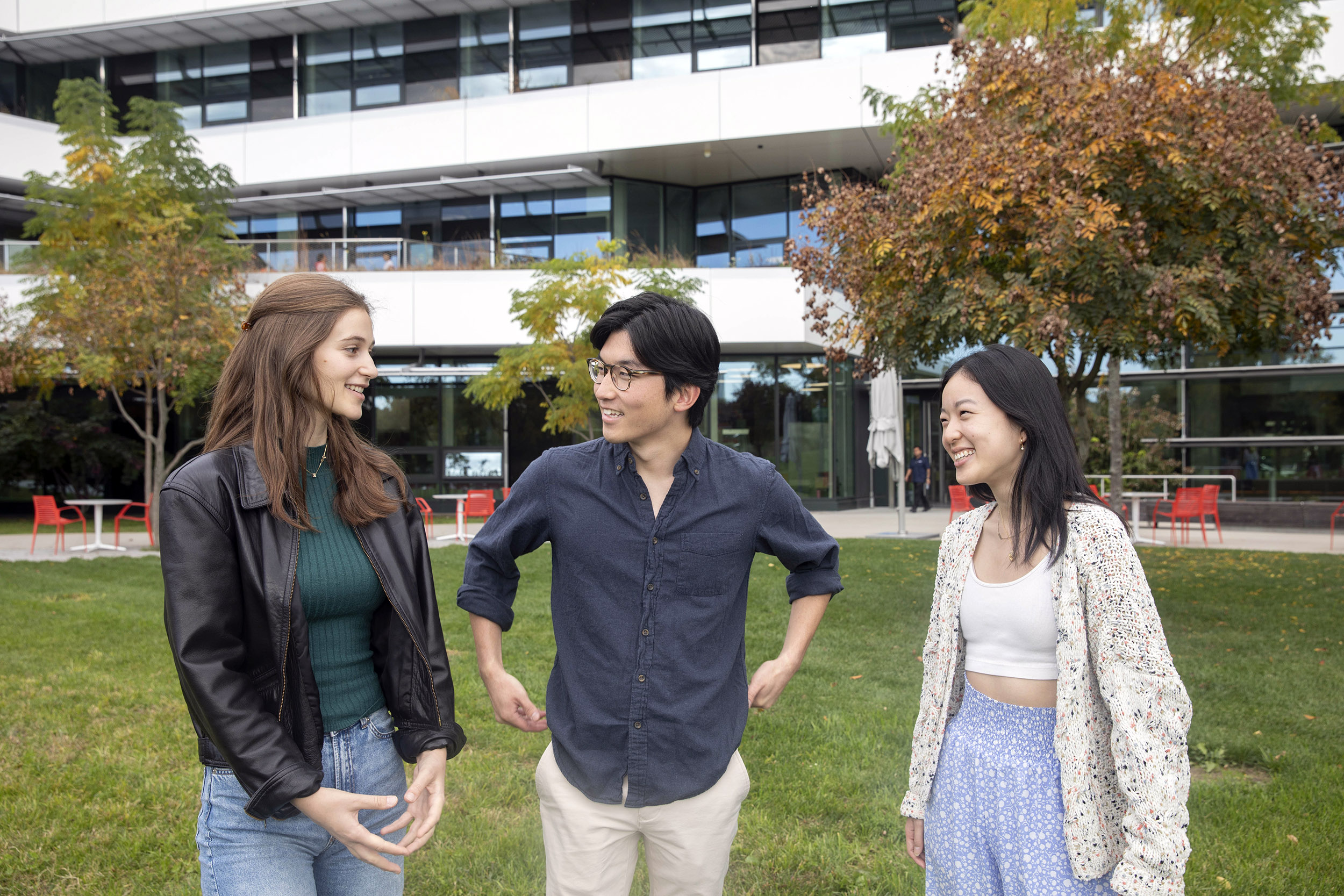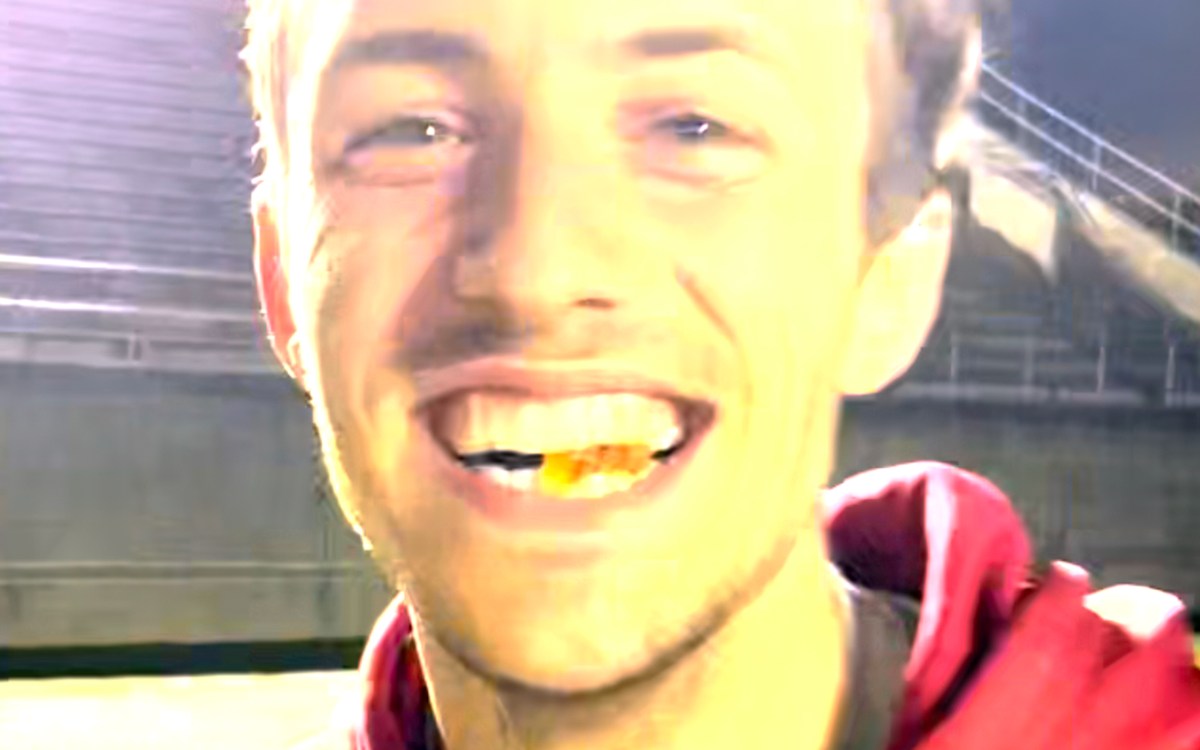
Benjamin Chang rows a hollowed-out 1,500-pound pumpkin across the Charles River.
Photo by Matt Shearer/WBZ, courtesy of Benjamin Chang
For Benjamin Chang, rowing a pumpkin across the Charles River wasn’t about fame (although 15 minutes of that came, too). It was about money.
The intrepid voyage in a hollowed-out gourd was a fundraiser for Harvard OpenBio, a burgeoning student-run laboratory aimed at democratizing biology.
Chang is a Harvard senior and co-president of OpenBio, which gives undergraduates the chance to participate in community synthetic biology projects without needing formal lab experience. The initiative is a passion project among Chang, co-president Izzy Goodchild-Michelman, director of engagement Audrey Gunawan, and several others who are “united by our belief in the power of biology to create positive change,” according to their website.
OpenBio has a dedicated corner in the Science and Engineering Complex, in partnership with the Active Learning Labs of SEAS, which provide space, mentoring, training, instrumentation, and safety oversight. The organization has also received support through student club funding, private donations, and industry sponsors.
But like any student endeavor, there’s never enough to cover everything, and a biology wet laboratory is expensive to run — from equipment like pipettes and reagents to expenses associated with events and workshops.
Enter the pumpkin. Always on the lookout for extra resources, Chang decided to fold fundraising into what he described as a “lifelong dream” to transform a giant pumpkin into a boat and row it across the Charles. The event involved borrowing a forklift to maneuver the 1,500-pound gourd and scooping out hundreds of pounds of innards. Before the Oct. 14 crossing, OpenBio offered rides in the empty vessel in exchange for cash. The day raised more than $500.

Chang with OpenBio co-president Izzy Goodchild-Michelman (left) and director of engagement Audrey Gunawan.
Kris Snibbe/Harvard Staff Photographer
More like this
Chang and his colleagues have been surprised by the attention the stunt has brought to OpenBio, and they hope the recognition blossoms into further growth and financial support. “I think all of this is to try to inspire that sense of wonder for biology, to help bring some of that childlike curiosity back,” he said.
The team is busy running three community biology projects: a tuberculosis therapeutic made out of the Lactobacillus bacteria found in yogurt; a low-cost surgical arm guided by machine learning; and a new way to dress wounds. They also host periodic workshops aimed at attracting students with curiosity about — but not necessarily experience with — wet-lab biology procedures.
“Life sciences research is classically something that has high accessibility barriers,” Gunawan said. “There’s something really unique about a space that provides low-stakes science in one weekend. You can come in with zero experience. It doesn’t matter if your experiment works out or it doesn’t, because you came in, and you learned something new.”





